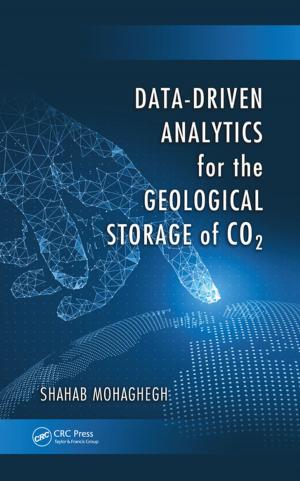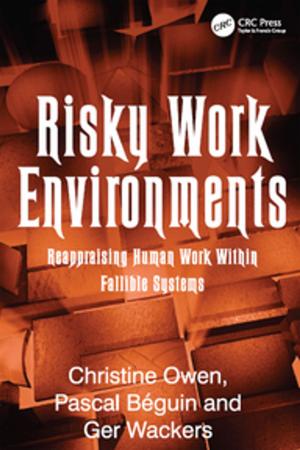Green Energy
Sustainable Electricity Supply with Low Environmental Impact
Nonfiction, Science & Nature, Science, Physics, Energy, Technology, Environmental, Electricity| Author: | Eric Jeffs | ISBN: | 9781351833905 |
| Publisher: | CRC Press | Publication: | December 19, 2017 |
| Imprint: | CRC Press | Language: | English |
| Author: | Eric Jeffs |
| ISBN: | 9781351833905 |
| Publisher: | CRC Press |
| Publication: | December 19, 2017 |
| Imprint: | CRC Press |
| Language: | English |
Green Energy: Sustainable Electricity Supply with Low Environmental Impact defines the future of the world’s electricity supply system, exploring the key issues associated with global warming, and which energy systems are best suited to reducing it.
Electricity generation is a concentrated industry with a few sources of emissions, which can be controlled or legislated against. This book explains that a green sustainable electricity system is one whose construction, installation, and operation minimally affect the environment and produce power reliability at an affordable price. It addresses the question of how to build such an electricity supply system to meet the demands of a growing population without accelerating global warming or damaging the environment.
The green argument for conservation and renewable energies is a contradiction in terms. Although they produce no emissions, because renewable systems are composed of a large number of small units, a considerable amount of energy is required to produce, erect, and maintain them. This book is a response to that conundrum, answering key questions, such as:
-
How can renewables be exploited to contribute the greatest energy input?
-
Should coal be used for clean fuel and chemical production rather than for power generation?
-
How quickly can we start to build the Green Energy system?
The author has more than forty years of experience as an international journalist reporting on power-generating technologies and on energy policies around the world. Detailing the developmental history, and current state, of the global nuclear industry, he discusses the dire, immediate need for large quantities of clean, emission-free electric power, for both domestic and industrial uses. This book details how current technologies—particularly nuclear, combined cycle, and hydro—can be applied to satisfy safely the growing energy demands in the future.
Green Energy: Sustainable Electricity Supply with Low Environmental Impact defines the future of the world’s electricity supply system, exploring the key issues associated with global warming, and which energy systems are best suited to reducing it.
Electricity generation is a concentrated industry with a few sources of emissions, which can be controlled or legislated against. This book explains that a green sustainable electricity system is one whose construction, installation, and operation minimally affect the environment and produce power reliability at an affordable price. It addresses the question of how to build such an electricity supply system to meet the demands of a growing population without accelerating global warming or damaging the environment.
The green argument for conservation and renewable energies is a contradiction in terms. Although they produce no emissions, because renewable systems are composed of a large number of small units, a considerable amount of energy is required to produce, erect, and maintain them. This book is a response to that conundrum, answering key questions, such as:
-
How can renewables be exploited to contribute the greatest energy input?
-
Should coal be used for clean fuel and chemical production rather than for power generation?
-
How quickly can we start to build the Green Energy system?
The author has more than forty years of experience as an international journalist reporting on power-generating technologies and on energy policies around the world. Detailing the developmental history, and current state, of the global nuclear industry, he discusses the dire, immediate need for large quantities of clean, emission-free electric power, for both domestic and industrial uses. This book details how current technologies—particularly nuclear, combined cycle, and hydro—can be applied to satisfy safely the growing energy demands in the future.















